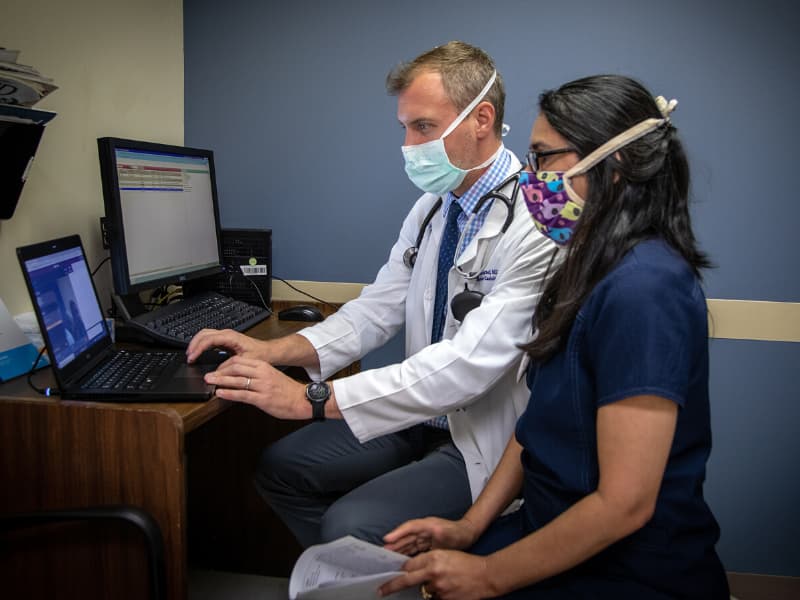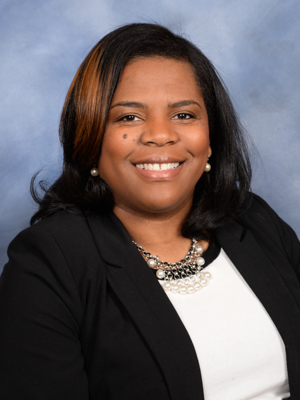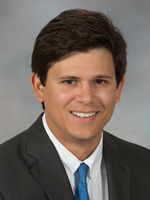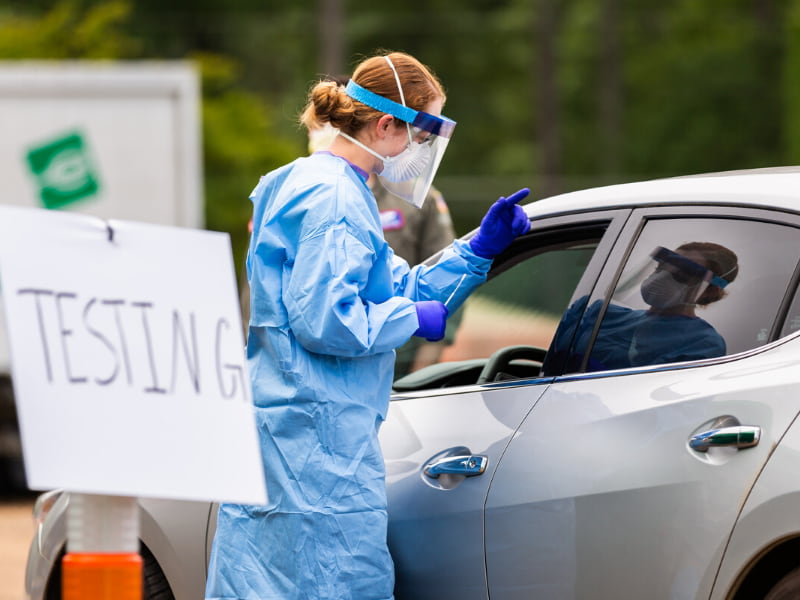FCC grant gives boost to Center for Telehealth's COVID-19 care

The Center for Telehealth at the University of Mississippi Medical Center is using a $1 million federal grant to speed expansion of services to meet the changing needs of patients during the COVID-19 pandemic.
The funding comes from the Federal Communications Commission’s COVID-19 Telehealth Program, which nationwide is awarding a total $200 million as part of the Coronavirus Aid, Relief and Economic Security Act, also called the CARES Act. The money helps nonprofit and public-eligible health care providers deliver telehealth services to patients at home or in mobile locations by funding their telecommunications services, information services and devices necessary to provide telehealth.
Concerns for the safety of both patients and providers continue to play a significant role in the Center’s work, with providers ramping up televisits so swiftly that networks initially struggled to keep up, said Dr. Tearsanee Carlisle Davis, the Center’s director of clinical and advanced practice operations.

“We had to put a mechanism into place to make sure people continued to get the care they need,” Davis said of the first weeks of March, when the virus began to sweep through the state. “We had to stand those operations up pretty quickly, especially in primary care and family medicine and in pediatrics, and also in our specialty care areas.”
Before the pandemic, an average 73 telehealth appointments were completed monthly. Today, thanks to 144-plus trainings for providers and departments early in the pandemic by telehealth team members, about 459 Medical Center providers use telehealth to remotely visit their patients. Those caregivers practice across 14 School of Medicine departments.

The funding “will support a lot of the infrastructure that will position the institution to provide the highest quality digital and telehealth health care possible,” said Julio Cespedes, the Center for Telehealth’s director of telehealth innovation, design and implementation.
“We’re lucky to have a lot of capacity in telehealth,” he said of the Center, one of just two Telehealth Centers of Excellence in the nation. “This will allow us to think about how to do this with best practices, in a much more sustainable way.”
The grant is being used to support additional COVID-19 triage and telemedicine visits with providers, both video and audio-only. Caregivers at the Center also are continuing to perform acute patient triage and screening in addition to scheduling testing for patients with COVID-19 risk factors.
The grant also will support upgrades to the Center’s phone systems, webcams and networks so that providers can better communicate in a virtual setting throughout UMMC’s hospitals and clinics, reducing the risk of exposure to patients and providers alike and lowering use of critical personal protective equipment.
Grant funding also will fuel the immediate expansion of non-COVID-19-related telehealth services for both routine and urgent care.
“The FCC recognizes the importance of strengthening telehealth capabilities as providers work to treat coronavirus patients while continuing to provide other medical services,” said U.S. Sen. Cindy Hyde-Smith, R-Miss., a member of the Senate Appropriations Committee, via a news release. “I’m grateful for these new FCC resources and hope to see more.
“Mississippi was a leader in telemedicine services before the pandemic, and these grants should work to build on that success.”
The FCC support “positions us to continue to be a leader in screening as many patients as possible for COVID-19,” Cespedes said. “It helps us to give our clinical areas the opportunity to continue to do telehealth in a way that best works for them.”
The pandemic forced the March cancellation or postponement of most UMMC outpatient appointments. The Center dramatically increased virtual visits using its UMMC2You platform, and in March alone, patients used it a total 4,723 times, a 286 percent increase over the 1,230 appointments in February 2020. That skyrocketed to 11,717 UMMC2You consultations in April, and remained high in May at 5,697 consultations.

Just as critical has been the Medical Center’s telehealth and physical support of COVID-19 testing at the Mississippi State Fairgrounds in Jackson and dozens of one-day testing sites throughout Mississippi. Testing at the Fairgrounds on June 1 moved to the West Street Farmers Market at the corner of West and Woodrow Wilson Avenue in Jackson. As of June 3, a total 10,134 had been tested at those drive-through collection sites.
Mississippians having symptoms of the virus or a known or suspected exposure continue to be screened by telehealth providers by calling the Center at (601) 496-7200 or by going to umc.edu/covidscreening. A provider schedules an appointment for those qualifying, either at the West Street Farmers Market or at the nearest one-day site coordinated by UMMC and the Mississippi State Department of Health.
As of June 3, 11,186 people had been screened for COVID-19 by the Center for Telehealth. Center providers also are staffing a COVID-19 testing hotline for UMMC employees that had fielded 3,741 calls as of June 3.
That testing re-directs patients who might have sought care in emergency departments or local clinics, possibly exposing others to the virus or unnecessarily taxing critical health care resources. Close to 76 percent of inquiries so far have led to testing, and a significant overall volume of all COVID-19 tests collected and completed for the Mississippi has originated from the mobile testing and employee hotline.
The Center makes phone calls to give those tested their results and coordinates testing site schedules, lists of patients with appointments, and collection of testing specimens at each site.
“One of the pluses of this has been that more providers have tried telehealth, and I expect that will continue to go up,” Davis said. “Those who were hesitant in the past have tried it, and they have found value in using it. On the patient side, some of them had no choice but to try it. Now, they’ve been exposed to it.”
Although dramatically increasing telehealth reach in the face of COVID-19 was a challenge, Davis said, “it was long overdue. You don’t realize how much you need something until you need it.
“We will be more prepared than ever going forward.”


